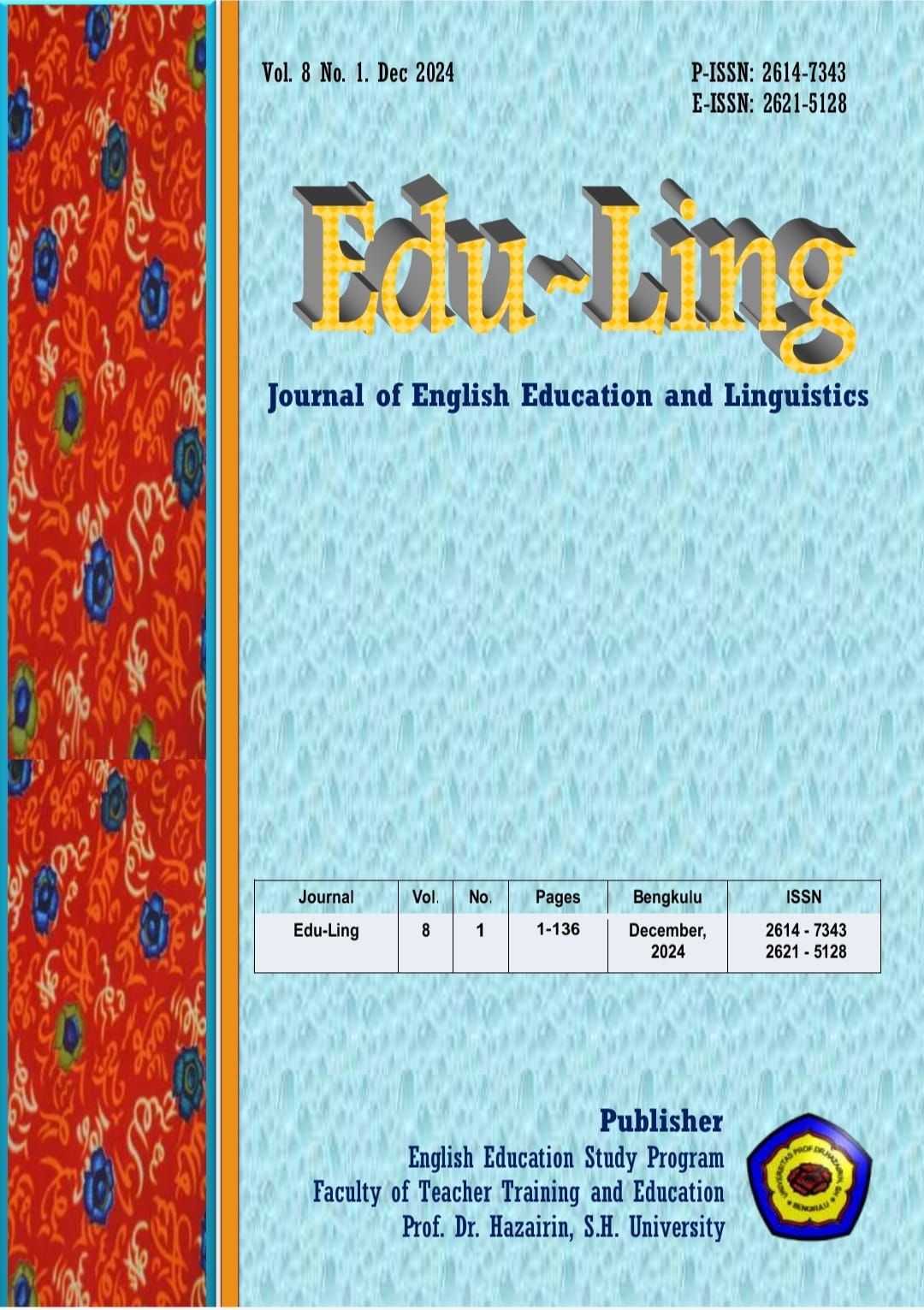Islamic English Instruction for Elementary School Students
DOI:
https://doi.org/10.32663/edu-ling.v8i1.4949Keywords:
Islamic values, English instruction, Education, Faith-based pedagogyAbstract
This study examines the integration of Islamic values into English instruction for elementary school students in Indonesia, addressing the dual need for linguistic proficiency and moral education. Using qualitative methods, data were collected through classroom observations, teacher interviews, and material reviews. The findings show that embedding Islamic content, such as Quranic verses and moral stories, enhances student engagement, retention, and critical thinking while aligning language learning with students’ cultural and religious identities. Despite its benefits, this approach faces challenges, including limited instructional materials, teacher training gaps, and time constraints. Teachers often modified secular curricula to include Islamic themes, which, though effective, required significant effort and adaptation. The study underscores the importance of developing culturally responsive teaching materials and providing professional development for educators to support this approach. It highlights the potential of Islamic English instruction to merge linguistic and moral education, offering valuable insights into faith-based pedagogy. These findings contribute to the broader discourse on culturally responsive education and provide recommendations for policymakers, curriculum developers, and educators in Muslim-majority contexts.









